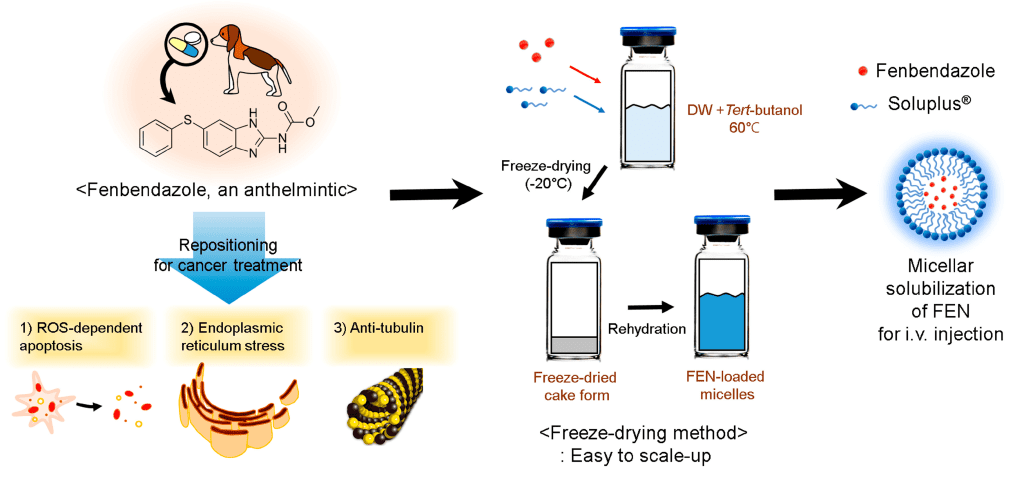Despite the similarities between parasitic and cancer cells, no peer-reviewed study has confirmed that fenbendazole can cure cancer. Moreover, Health Canada lists fenbendazole as for veterinary use only.
The Joe Tippens Protocol is a regimen that uses the dog wormer ingredient, fenbendazole, to treat cancer. This drug is effective in suppressing the growth of cancer cells and it works by disrupting microtubules.
It is a benzimidazole
Benzimidazole carbamates, including fenbendazole (methyl N-(6-phenylsulfanyl-1H-benzimidazol-2-yl) carbamate), are broad-spectrum anthelminthic drugs. They act by binding to b-tubulin microtubule subunits and disrupting their polymerization. In addition to their antiparasitic activity, they have been found to have potent antitumor activities. These drugs are currently under investigation for repurposing as cancer treatment agents.
In this study, fenbendazole (FZ) was shown to inhibit microtubule polymerization and induce cell cycle arrest in 5-fluorouracil-resistant colorectal cancer cells. Additionally, it activated ferroptosis and reduced caspase-8 activation in these cells.
In addition, FZ induced apoptosis in lymphoma cells without affecting normal spleen cells. These findings suggest that benzimidazole may be used as an antitumor agent in combination with standard chemotherapy. In silico target prediction analysis has revealed that several benzimidazole carbamates interact with multiple molecular targets, suggesting polypharmacological profiles. However, these predictions will need to be validated in future in vitro and in vivo studies. The benzimidazole carbamates also have a low interaction with P-gp, which can block drug efflux from tumors.
It is a broad-spectrum anthelminthic
Fenbendazole is a member of the benzimidazole family and has been in human and veterinary use for over 50 years. It is effective against parasitic worms and has a low side effect profile. It also shows moderate microtubule depolymerizing activity and has antitumor effects in vitro and in vivo.
Interestingly, repositioning of existing drugs for the treatment of cancer could reduce the cost and time needed to develop new medications. For example, a case report describes a woman with metastatic NSCLC who self-administered oral fenbendazole, which she purchased and took based on information from social media sites that reported it was effective against cancer.
Benzimidazole (FZ) is a broad-spectrum anthelmintic approved for veterinary use against hookworm, Ascaris, and roundworms. It is highly effective in reducing egg counts and has been shown to be a safe drug for long-term use in humans.
It is a microtubule interfering agent
Fenbendazole is an antiparasitic agent that acts by interfering with the polymerization of microtubules. These are part of the protein scaffolding that gives shape and structure to cells. It also inhibits glycolysis, which is the energy source that most cancer cells rely on for their survival. This makes fenbendazole a promising anticancer drug.
It binds to the colchicine-binding site of tubulin and interferes with the assembly of the microtubules that form the cell’s cytoskeleton. In addition to disrupting microtubule dynamics, fenbendazole inhibits glucose uptake and expression of the glycolytic enzymes GLUT transporters and hexokinase. This dual action enhances the effect of the drug on multiple cellular pathways, including p53-dependent apoptosis and ferroptosis-augmented apoptosis.
It also induces G2/M phase arrest and increases p21 protein expression in colorectal cancer (CRC) cells. However, it does not trigger autophagy or ferroptosis. This may be due to its inhibition of hexokinase activity or increased AMP levels, which suppresses the expression of the autophagy inhibitor LC3 and GPX4. It has synergistic effects with taxol and 2 deoxyglucose (2DG), a compound that reduces glucose synthesis by blocking pyruvate carboxylase.
It is an antitumor agent
The benzimidazole antiparasitic drug fenbendazole has been shown to slow cancer cell growth in lab experiments. It also interferes with cellular energy metabolism, preventing the synthesis of ATP and depriving tumor cells of glucose, a key source of energy. In addition, it interferes with the formation of microtubules, which provide structure and shape to cells. This mechanism makes it an effective antitumor agent.
In addition, fenbendazole induces apoptosis in 5-fluorouracil-sensitive and resistant colorectal cancer cells by both p53-dependent and -independent pathways. In addition, it induces ferroptosis-augmented apoptosis in the p53-null SNU-C5 cell line. It also inhibits the proliferation of CRC cells in a time-dependent manner. Immunoblotting analysis showed that fenbendazole reduced the expression of necroptosis proteins, including pRIP, pMLKL, pFOXN, and caspase-8.
Although Tippens’ claim about fenbendazole was false, it spread rapidly online and was widely reported in the media. The nonprofit organization Cancer Research UK told PolitiFact that fenbendazole hasn’t gone through clinical trials to prove whether it can cure cancer.fenben cancer treatment
